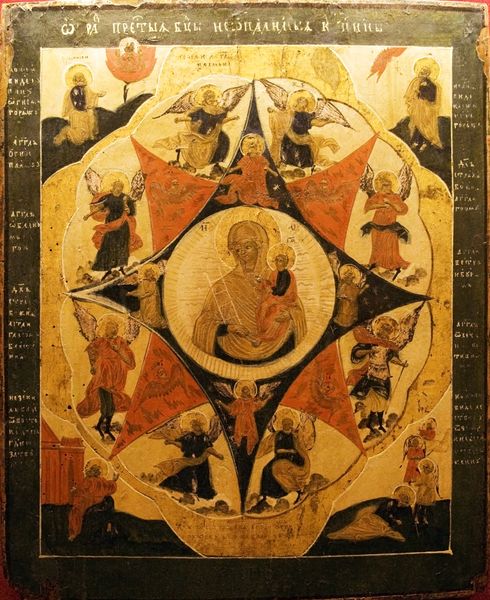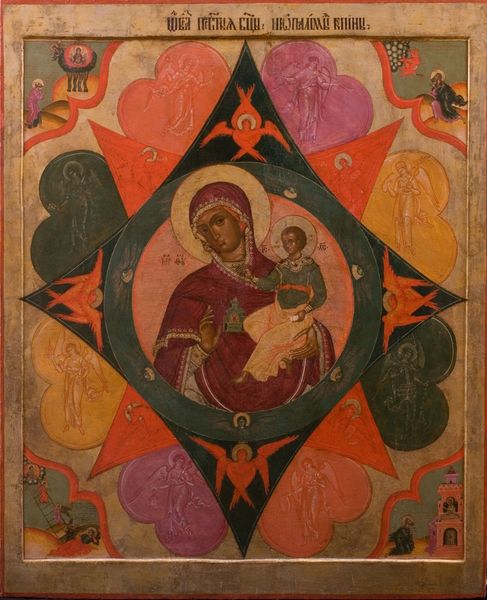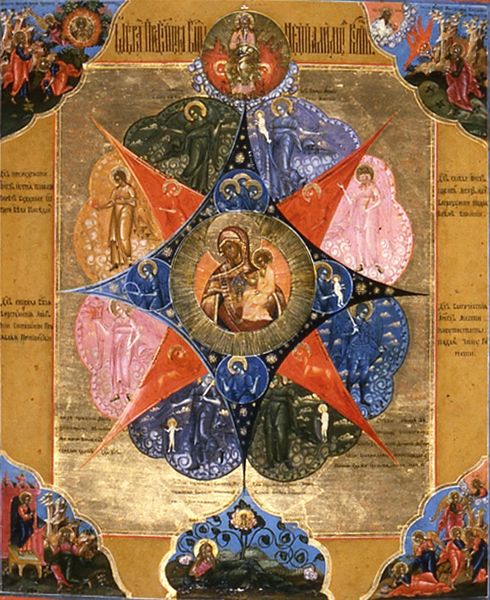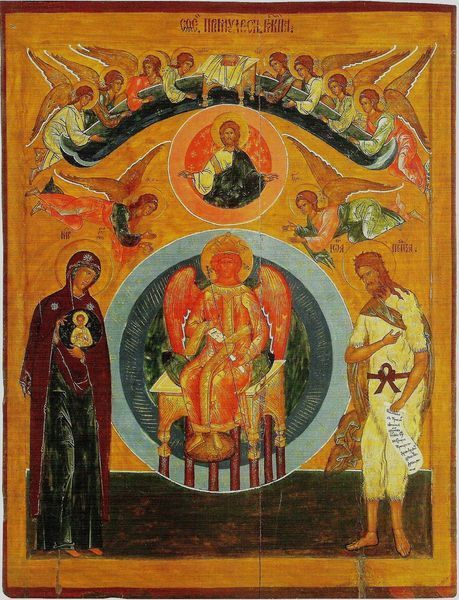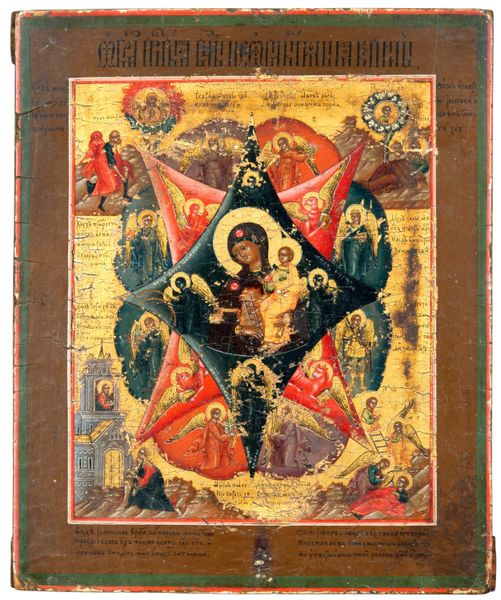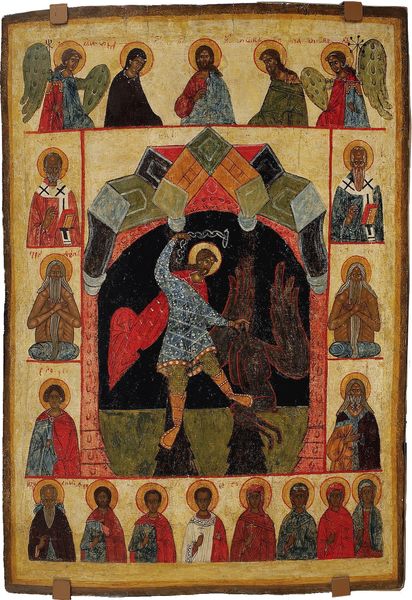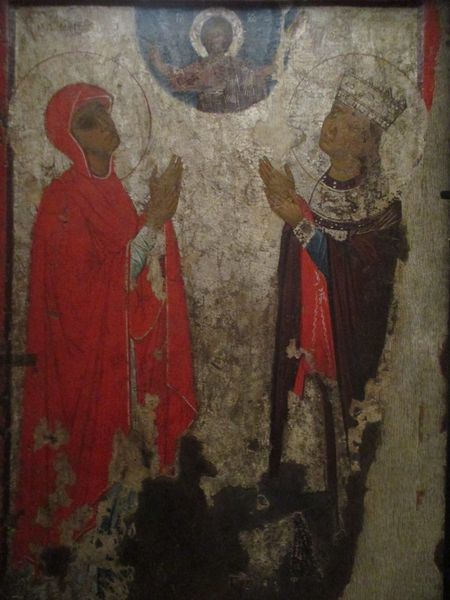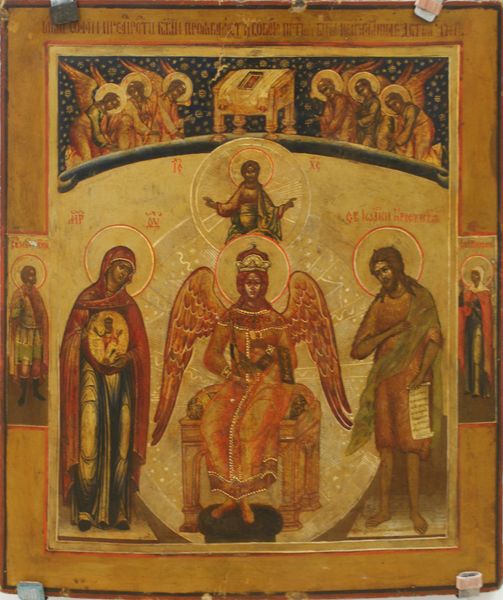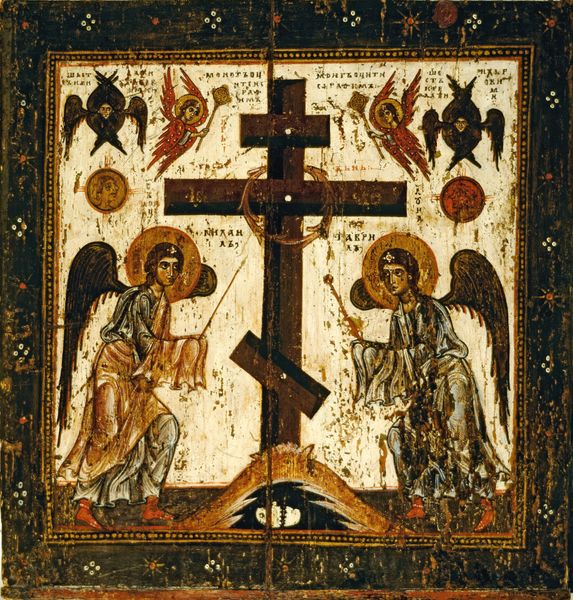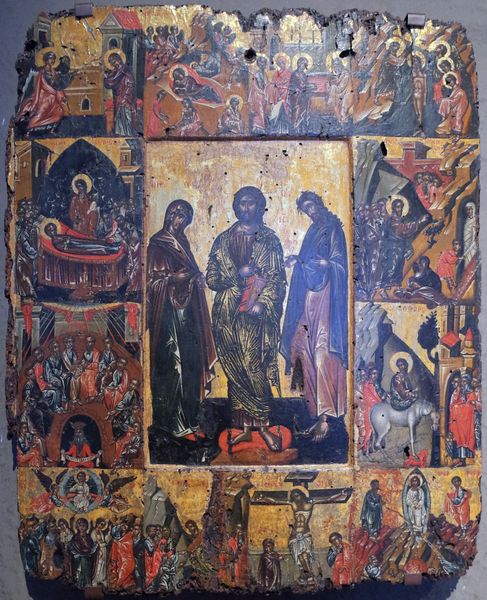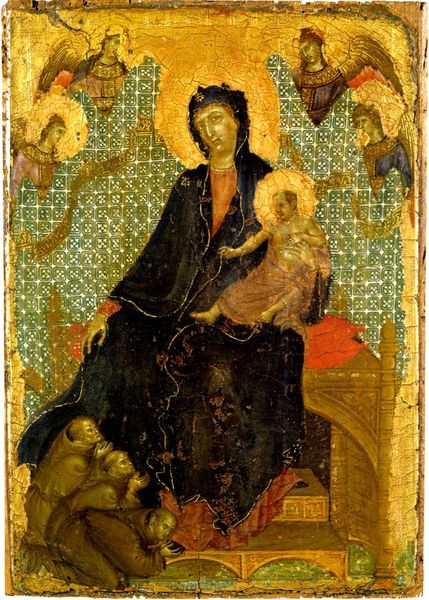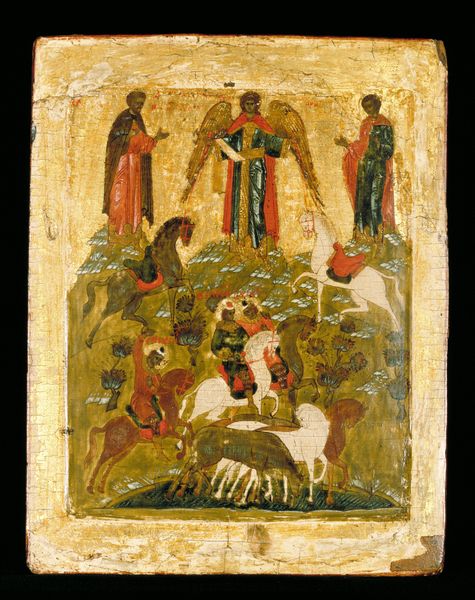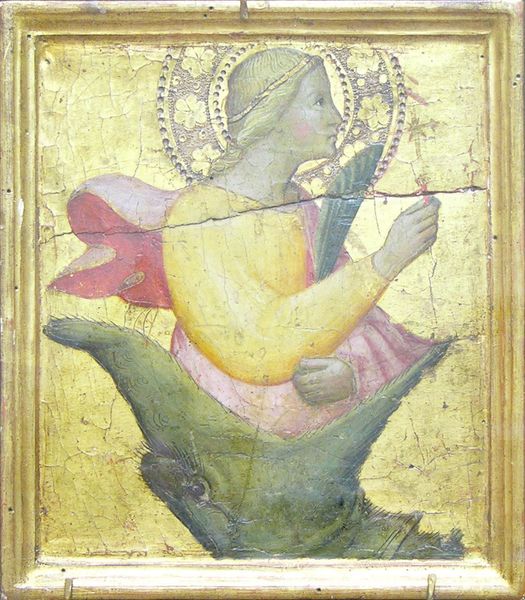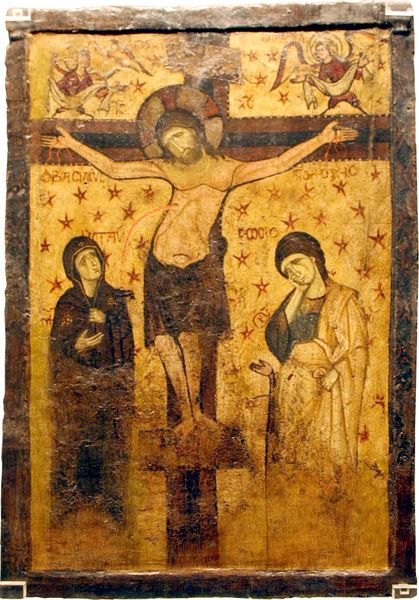
tempera, painting
#
portrait
#
byzantine-art
#
medieval
#
tempera
#
painting
#
figuration
#
oil painting
#
history-painting
Copyright: Orthodox Icons,Fair Use
Editor: This is "The Virgin of the Burning Bush," a tempera painting from 1550. The geometric shapes and the central figures create such a striking visual. What do you see in this piece beyond the immediate image? Curator: Beyond the surface, I see a powerful synthesis of theology, history, and perhaps, resistance. The Burning Bush motif, representing the unconsumed fire of God's presence, is interwoven with the image of the Virgin. Consider the socio-political context. Icons like these often served as quiet declarations of cultural and religious identity, especially during periods of upheaval or oppression. It prompts us to question, what did this image *do* for its community? How did it reinforce or perhaps subtly challenge existing power structures? Editor: I see what you mean! It's not just a devotional image but a statement. The interlocking geometric shapes, the two rhomboids, feel almost like a shield or a fortress. Curator: Exactly. It’s a fortress of faith, but also perhaps a reminder of the struggles and resilience of the community that created and venerated it. The way Mary is portrayed – not just as a gentle mother, but as a strong, unwavering figure – is really telling. What does that tell us about the role of women, or at least the *idealized* role of women, in that society? Editor: I never thought about the geometric shapes that way – I thought they were just decorative, but they add to the feeling of resilience! Curator: It really makes you consider the function and reception, who was it for, and how did they see themselves reflected (or not!) in the icon's symbolism? Editor: Absolutely. It gives the artwork a new life and significance to think of this representation in its unique time and how the surrounding community identified with it!
Comments
No comments
Be the first to comment and join the conversation on the ultimate creative platform.
